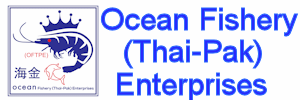Fishery and Aquaculture Country Profile for Mauritius
- aquatic species caught by country or area, by species items, by
FAO major fishing areas, and year, for all commercial, industrial,
recreational and subsistence purposes. The harvest from mariculture,
aquaculture and other kinds of fish farming is also included.
Ministry of Agro
Industry and Fisheries (Fisheries)
The policy to sustain the development of Mauritius into a Seafood
Hub is a priority on the economic agenda of Government. The Seafood
Hub is defined as: “An efficient and attractive environment for the
supply of value added processes and services related to the sourcing
and marketing of sea food products”. The objective is to transform
Mauritius into a Seafood Hub for trading, warehousing, processing,
distribution and re-export of fresh, chilled and frozen or value
added seafood products. The strategy of the Seafood Hub is focused
on the development of value added fisheries and seafood related
sectors including fishing, transshipment, storage and warehousing,
light processing (sorting, grading, cleaning, filleting and loinning),
canning, ancillary services (ship chandlling, bunkering, vessel
husbandry, ship agency, ship building and repair).
The National
Oceanographic Data Centre (NODC) operates as the
national oceanographic data archive of Mauritius. It was officially
established in November 1999 at the Mauritius Meteorological
Services within the guidelines of the Ocean Data and Information
Network for Africa second phase project (ODINAFRICA-II) with
satellite stations at the University of Mauritius, Albion Fisheries
Research Centre and Mauritius Oceanography Institute. The mission of
the NODC is to enhance oceanographic services and promote
further marine research by making available, to policy-makers and
the marine communities, ocean data and products, in real and
non-real time, for the efficient management and sustainable
development of coastal and marine resources.
Mauritius
Oceanography Institute. MOI is responsible for the
formulation, implementation and coordination of scientific
programmes relating to the protection, exploration and development
of marine living and non-living resources in the Maritime Zones of
the Republic of Mauritius. MOI is a an autonomous research
organization involved in scientific research and modelling to
characterize coastal and oceanic processes within the maritime
jurisdiction of the Republic of Mauritius and the Indian Ocean.
Meteorological Services -
Mauritius meteorological services information website
Ministry of Environment and National Development Unit
- Mauritius ministry of environment
The
Ocean
Data and Information Network for Africa (ODINAFRICA) brings
together marine institutions from twenty-five Member States of the
Intergovernmental Oceanographic Commission of UNESCO from Africa
(Algeria, Angola, Benin, Cameroon, Comoros, Congo, Cote d'Ivoire,
Egypt, Gabon, Ghana, Guinea, Kenya, Madagascar, Mauritania,
Mauritius, Morocco, Mozambique, Namibia, Nigeria, Senegal,
Seychelles, South Africa, United Republic of Tanzania, Togo, and
Tunisia). The goal of the current phase of ODINAFRICA is to improve
the management of coastal and marine resources and the environment
in participating countries by: enhancing data flows into the
national oceanographic data and information centres in the
participating countries, strengthening the capacity of these centres
to analyse and interpret the data so as to develop products required
for integrated management of the coastal areas of Africa, and
increase the delivery of services to end users.




